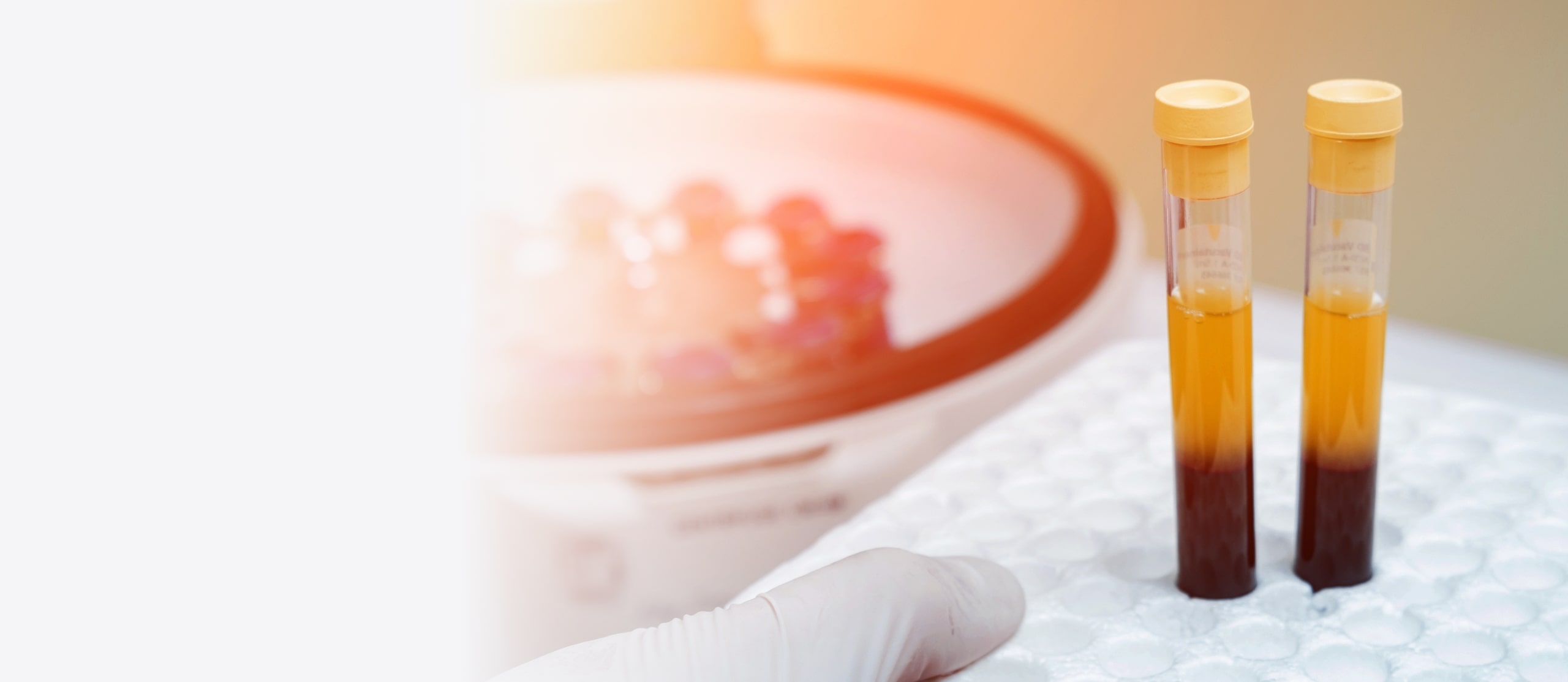How Is Plasma Used in Cancer Treatment?

Cancer is the second leading cause of death worldwide. Common treatments include surgery, chemotherapy, radiation therapy, hormone therapy, and other targeted therapies.
Blood products, including plasma, play an important role in supporting cancer patients throughout their treatment journey. They can help:
- Manage side effects
- Prevent complications
- Improve outcomes
Plasma in Cancer Treatment
Plasma makes up more than half of your blood volume and is the medium in which red blood cells, white blood cells, and platelets are suspended. Plasma also includes many other vital components, including clotting factors, which allow your blood to clot properly.
Cancer patients may experience disseminated intravascular coagulation (DIC), a serious and potentially life-threatening condition that can lead to the formation of small blood clots inside the blood vessels.
DIC can be triggered by a bloodstream infection or by leukemia. It causes clotting factors to become used up, resulting in bruising or dangerous bleeding. Replacing these clotting factors by transfusing donated plasma can treat DIC in a cancer patient.
Platelet-rich plasma (PRP) has an elevated number of platelets and is sometimes collected from and administered to the same patient. In cancer treatment, PRP is being used in new and innovative ways, including the treatment of radiation-induced wounds and restoration after breast cancer surgery.
The ability of PRP to promote the regeneration of tissues and blood vessels is the rationale for its use. There are some concerns that these properties could also promote tumor growth in some situations, raising the question: Is PRP safe for cancer patients? More studies are likely needed, but the cautious use of PRP in certain cancers is being explored and shows promise. For example, PRP has been used to aid in wound healing after the removal of IV access sites in cancer patients who were receiving chemotherapy treatment. In this case, PRP appeared to be both effective and safe.
Therapeutic Plasma Exchange in Cancer Treatment
Therapeutic plasma exchange (TPE) is used to help treat several conditions, including liver disease, Guillain-Barre syndrome, and myasthenia gravis. It is also increasingly used to treat certain cancers, including multiple myeloma, a cancer of the blood.
Therapeutic plasma exchange involves the removal of a patient’s blood and the separation of their plasma from the other blood components. These components, including red blood cells, white blood cells, and platelets, are returned to the patient along with healthy plasma from a donor and, in some cases, some of their own filtered plasma.
Treating multiple myeloma is the primary application of plasma exchange in cancer treatment. Multiple myeloma involves abnormal cells in the plasma and excess proteins called free light chains, or FLCs. FLCs can cause kidney damage by creating casts (obstructions) in the small tubules of the kidneys. Plasma exchange can filter out FLCs and prevent kidney damage in multiple myeloma patients.
Plasma exchange also helps treat thymomas. A thymoma is a tumor on the thymus, a small organ near the heart that plays a role in the immune system. A common complication of thymoma is myasthenia gravis, an autoimmune condition. In myasthenia gravis, the destruction of acetylcholine receptors at the junction of nerves and muscles results in muscle weakness and fatigue. Therapeutic plasma exchange can reduce the symptoms of myasthenia gravis by filtering out the autoantibodies that damage these receptors.
Plasma exchange can also reduce excessive amounts of a chemotherapy medication called cisplatin. Cisplatin is commonly used to treat cancers of the neck and head, bladder, lungs, and reproductive organs. Excessive levels of this medication can cause kidney damage, vomiting, and suppression of the bone marrow. Therapeutic plasma exchange can filter out the excess cisplatin and relieve adverse side effects for patients.
Your Plasma Donations Can Change Lives
Your plasma donations can make a real impact on the lives of cancer patients and those living with many other diseases and disorders. We invite you to donate plasma at PlasmaSource to support disease prevention research and facilitate the development of life-saving pharmaceuticals.
Our highly trained experts are dedicated to providing a safe and streamlined donation experience.
Learn more about our process or contact us to schedule an appointment today.
